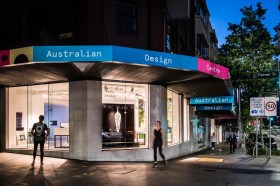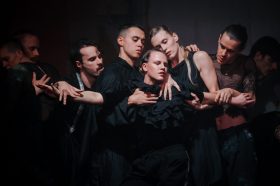With no set career trajectories, an oversupply of great candidates for limited positions, and working endlessly for free ‘for the experience’ before you finally land a job that pays – breaking into the arts can feel challenging and terrifying. If you’re a graduate, job hunter, looking for a career change or the next challenge in your arts career, motivation can dwindle after receiving yet another rejection.
Often we’re told experience is key – if you volunteer and intern for organisations you will be rewarded with entry level positions. But what about advice for those who have done the rounds of volunteering and internships?
To help guide you through your search, we asked several arts professionals spanning the literary and performing arts, visual arts, administration and programming to give us real, candid advice to reinvigorate your job search and help you land a job in the arts that don’t include working for free.
1. Build personal relationships
Almost everything in the arts is about personal relationships, said Simon Abrahams, CEO and Creative Director for Melbourne Fringe Festival: ‘It’s almost impossible to make anything happen – from funding applications to sponsorship proposals to programming to job applications – if you simply send in a request cold.’
Find a way in and introduce yourself, advised Abrahams. ‘Making a human connection is how I make my way through all unchartered territory in my career.’
2. Meet a stranger a week
When in the midst of job hunting, rejection can be disheartening and discouraging. Small achievements and connection with people can help boost your confidence. Try setting yourself the mini-project of meeting someone new for coffee each week to keep you motivated and connected.
3. Broaden your search
While a narrow search can help focus your job search, ‘Don’t fall into the trap of only looking in places, with organisation or subject areas that currently interest you,’ said Rebecca Lamoin, Associate Director, Queensland Performing Arts Centre.
4. Start a passion project
When you can’t find the job you want, create it. Starting a passion project – whether it’s a writing project, website, zine, illustration-a-day, Instagram project, podcast, or a small event, a side-project is a low cost way to boost your CV, connect with people in the industry and gain recognition.
5. Teach your craft
Don’t neglect your craft and skill while looking for the dream gig. Be it writing, acting, illustration, or professional development, a boom in interest for workshops has made it easier for creatives of all kinds to supplement their income and keep up their skills.
6. Freelance
For those wishing to move into the arts industry or build experience before leaving their day job, freelance work can help build your skills while still fitting into your schedule. Build your writing, design or curatorial portfolio on nights or weekends, or contract for smaller events or conferences. Once you have gained momentum, you can take the leap.
7. Join a co-working space
Before going to a co-working space, illustrator Sarah Hankinson had no clients. Within a few weeks she was able to work full-time through the connections and collaborations she had made within the space. Join an existing co-working studio or make your own to meet creatives and uncover new sources of work.
8. Attend festivals and conferences
Industry festivals and conferences are a goldmine for making connections with people, and informal networking opportunities make it less daunting to mingle.
If you can, try to participate on a panel in a festival or conference to boost your profile and have a room full of people know a bit about your background, interests and skills. You never know when you might get an email with, ‘Hi, I saw you on that panel and…’
9. Apply for the job you’re not ready for
Research shows that women only apply for a job if they feel they are 100% qualified; men 60%. Lesson? Apply for the job anyway – if you make a good impression you’ll be on someone’s radar. You might not get the job, or even an interview, but a few months down the track you might pop into their mind and be offered the job (which just so happened to the author of this article!)
10. Create a video resume
While gimmicks are to be mostly avoided, if you are applying for a digital or creative role in the arts, showcase your skills in any way you can. If you are handy with a camera, or feel you present better verbally than the written word, try a video resume to stand out.
11. Hand out flyers
The retail and restaurant industry thrives on drop-by CVs, but it’s usually not a common practice in the arts. Slightly tweaking the approach, one job seeker told ArtsHub that she had created an A4 flyer complete with ‘Seeking job in the arts’ and a brief description of her experience and handed out in the CBD – she was later called for an interview.
12. Gain experience at a remote arts centre
Looking outside capital cities and working in a remote arts centre can be a rich and rewarding career choice for professionals from a visual arts, art management or Indigenous studies background. From juggling market pressures and ensuring work reaches galleries, to entering artists into competitions, prizes, residencies and training programs, art centre work will build a dynamic skill set.
13. Enrol in professional development courses
Further education is a great way to fill experience and skill gaps, but difficult to fit around existing work schedules or personal budgets. Professional development programs can work around your busy schedule and help boost your skills and connect your with the industry.
14. Go regional
For arts professionals seeking opportunities, the advantages of regional life can often outweigh the costs and create a sustainable career. Creative Arts Facilitator at Regional Arts Victoria, Malcolm Sanders, offered some advice for going regional. ‘We wouldn’t say that there are “many” opportunities for artists to work in regional areas, but opportunities are most certainly there. It is important however, if you want to work with a regional community that you understand and work with them for the best outcome.’
15. Transform your creative practice
If you are trained in one artistic discipline but striving for a job in another, use the skills you’ve already acquired to move in a new direction. Graphic design to illustrator or artist; editor to programmer; performer to artistic director – build and transform your experiences to go in the direction you want.
16. Go international
If dropping everything and moving overseas isn’t feasible, consider a small jaunt to meet with international contacts, or apply for an international residency or placement through organisations such as Asia Link.
17. Work a new project into your day job
Bored and restless at your day job? Try to incorporate an additional project or responsibility to your existing role so you can build on your experience. Host an event or start a staff club if you want to get into programming; ask to help with social media if you want to build marketing skills or a blog post if you want to start writing.
18. Pick up the phone
When looking for a job in arts publicity, Lila Cummings didn’t wait for the job to be advertised. Instead she picked up the phone, demonstrating one of the key skills of a good publicist and impressing prospective employees. ‘I found the classic cold call to be a great approach to getting my name on the interview list that would have otherwise been inaccessible.’
19. Follow up with unsuccessful job interviews
It may be devastating to receive a rejection after a great interview, but equally you have just had the rare opportunity to be in the room with a leading arts worker for 30 minutes or more. They are now aware of your skills and experience – show them your gumption and send a follow up email.
‘If you don’t get an interview, or don’t get the job, email to ask if they are able to provide feedback on your application. If they have time to get back to you, appreciate it. Don’t be offended by the feedback – take it as valuable advice and act on it,’ said Gabrielle Ryan, Events Manager at the Wheeler Centre.
20. Make contact after receiving a business card
If you meet someone new at an event, always follow up with a simple, ‘Hello, it was nice to meet you.’ It can be easy to forget or confuse the names and professions if you are mingling with dozens of people at a particular event, and a follow up helps cement who you are in someone’s mind.
21. Put on your own exhibition or show
If you have the time and resources, putting together your own exhibition, entering a show into a Fringe festival or curating your own exhibition is a fulfilling way to promote your skills and work. You may end up boosting the bank account if you sell work or encounter new people and opportunities.
22. Reflect
Director of Regional Arts Victoria, Esther Anatolitis, previously shared advice with ArtsHub which suggests taking a step back from career planning and instead investing time to reflect critically on your choices: ‘If you’re not aware of what drives you and what interests you most, you won’t know what to say yes to – or say no to – when opportunities arise.’
23. Embrace the portfolio career
Juggling multiple job titles such as graphic designer/producer/musician/festival assistant is proving to be a successful way to remain gainfully employed while doing things you actually enjoy. Embrace your various talents, breadth of skill and multiple passions and build a portfolio career.
24. Pursue further study or do a PhD
Further study can boost your CV. ‘I applied for quite a few jobs in the literary arts management field and kept getting pipped at the post because I didn’t have arts-specific, or event management experience – despite years of publishing and book industry experience,’ said Helen Withycombe, Programming Manager, the Wheeler Centre.
‘So I took that feedback on board and enrolled in a Masters of Arts Management – the contacts and skills I developed through that degree have proved to be more than worthwhile, and I think it showed prospective employers that I was serious about a future in this industry,’ she added.
In a competitive job market, a PhD can also be a springboard for new beginnings, teaching opportunities and enable artists to delve deeper into their practice.
25. Get comfortable with uncertainty
Urbanist, festival director, TV presenter, writer and broadcaster Marcus Westbury has learned to live with uncertainty throughout his career. He previously told ArtsHub, ‘I have tended to work from project to project without thinking a lot about what the next one will be. Occasionally that catches you out a bit when you realise that you’re some combination of broke, over-committed and underemployed but it has also given me the capacity to adapt very quickly to what is a complicated and dynamic environment.’
26. Don’t stress about success
While aspirations and goals can act as a great motivator, Melbourne Festival’s Artistic Director Jonathan Holloway shared advice about how we should think about success. ‘Success never comes in a straight line, it’s not linear. It’s not that things go well and you succeed – it’s things go badly, things go strangely, you end up in a place you didn’t expect and ultimately you succeed or fail. But whatever happens, you learn from it and move on,’ he said.
27. Learn how to take nice photos
In a competitive industry, what puts you ahead of another candidate might not be what you expect. ‘Everyone is always looking for a photographer. So get skilled in photography, because that is always a winner with potential employers. Period,’ said Myles Russell-Cook, Assistant Collection Manager, Australian Aboriginal Collection, Museum Victoria.
28. Don’t “network”
Instead of networking, try and build relationships with people, said Russell-Cook. After all, networking is an ugly word. ‘You know those people at conferences who are constantly looking around the room for someone more important than you who they could be talking to? Someone who might be able to boost their career or who would look good on a resume? Don’t be one of those people. It’s obvious and no one likes it.’
29. Talk to people
Talking about yourself can sometimes feel cringe-worthy, but remember people aren’t mind readers. You never know where a simple conversation can lead you and Gabrielle Ryan, Events Manager at the Wheeler Centre’s advice is to talk to people and be open about your experience and what you are seeking. ‘Tell them what your ambitions are, and where you want to end up. They will be able to give you good advice and may be able to tell you about opportunities that come up.’
30. Skills, skills, skills, transferable skills
Cultivate transferable skills in order to move between roles and be seen as indispensable to prospective employers. ‘My administrative and organisational skills learned in previous non-arts jobs have been one of my biggest assets in this job. You never know when different experiences and perspectives will come in handy. When applying, spend some time demonstrating why these skills will be an asset in the job you’re applying for – it may not be immediately obvious,’ said Ryan.
31. Be willing to go beyond the job description
The arts often don’t fit into nine-to-five schedules and it’s important to be prepared. Bangarra’s Marketing and Communications Manager Nathalie Vallejo told ArtsHub, ‘Rarely will your job in the arts solely be what’s on your job description so be prepared to muck in on those all-important opening nights. This is also great to discover new work areas, and who knows, what may become your future career!’
32. Put lots of effort into all job applications.
Writing applications can sometimes feel like the most tedious activity, but Russell-Cook stresses their importance. ‘If you are going to fling a half-baked application down a hallway don’t bother. Either apply properly for a job, or don’t apply at all. Applying properly means writing a cover letter, addressing all selection criteria and tweaking your resume to be appropriate for what your employers are looking for.’
33. Be engaged in the industry you want to work in
It may sound obvious, but if you want to pursue a certain career, engage with it. ‘If you want to work in books, read books. Keep up to date with new Australian and international authors, keep yourself informed about literary prizes. Go to events, support independent bookshops and organisations. If you do volunteer, know about the events you’re volunteering for or the contribution you are making to that organisation.
‘Become a familiar face! You need to be in the right place at the right time, and if you’re engaged, reliable, and enthusiastic, you will demonstrate commitment, which will increase your chances of also being the right person,’ said Ryan.
34. Go where the work isn’t
If your preferred employers aren’t currently hiring, don’t hesitate in showing your interest. ‘Even if they don’t have work currently, by meeting them and keeping in touch you’ll make sure you’re front of mind when an opportunity arises,’ said Nicole Kenning, Marketing Manager, Mossgreen.
‘Be focused – learn as much as you can about the industry you want to break into and identify who it is you’d like to work with, then meet with as many of them as possible!’
35. Show how you can improve an organisation
Proving your worth and highlighting your skill set is essential, explained Vallejo. ‘The arts collectively is a very dynamic and personality-driven workspace, and in most organisations you’ll find us making lots of big things happen with little resources – so creative, smart employees with lots of initiative and self-motivation are like gold! So if you’re looking for work, it can’t hurt to do some research via an organisation’s website, think about the ways you can best contribute to its success and adopt this can do positive attitude with the genuine passion you hold for the arts.’
36. Get better at listening
As empathy expert Roman Krznaric told ArtsHub, listening is the cornerstone of making any workplace and team function and should be a recruitment criteria.
Vallejo agrees. ‘[Listening] has been so important for working in communications and marketing for one of Australia’s leading Indigenous performing arts companies – LISTEN, LISTEN and LISTEN. There’s nothing more inspiring than talking to the artists around you, the ones who create the shows, the ones who will give you the resources you need to pass the message on from the creative hub to the audience.’
37. Master the magic three
Opportunities don’t come your way as easily as you might think in the arts and Nicole Durling, Senior Curator at the Museum of Old and New Art (MONA) offers three essential qualities for any arts worker or job seeker to acquire: ‘Always be curious. Work really hard. Learn as much as you can from wherever you can.’
38. Make the most of university placements
When studying arts administration, Helen Sheldon, General Manager, Vitalstatistix made the most of field placement. ‘This provided budding arts workers with the opportunity to be strategic about where one might like to work or what area of the arts. I ended up doing two placements, firstly at the Adelaide Festival and then at the Melbourne International Jazz Festival. Particularly my work at the Jazz Festival led to two job offers.’
39. Be flexible
It’s important to be flexible in your art career expectations, said Nicole Kenning. ‘Be flexible – your first job may not be your ideal job but this industry is competitive, so getting your foot in the door is important and all experience is valuable.’
40. Use social media to your advantage
You don’t need a huge following or large social media presence to make the most of various platforms. Follow organisations on Twitter and Facebook to keep up to date with news and opportunities, as well as build connections with staff.
41. Be a creative consultant
Creative skills are sought after in a range of industries, and becoming a creative consultant is one way to transform them into tangible job outcomes.
In a competitive creative economy, US publication Entrepreneur described creative consultants as those able to ‘define problems, recognize opportunities, and develop new products and services by finding out-of-the-box solutions to produce innovation.’
42. Know how to talk about your skills
With the many and varied challenges of operating a sustainable arts organisation, almost all of your skills will be relevant at some point, said Rebecca Lamoin, Associate Director, Queensland Performing Arts Centre.
‘Highlight them and practice talking about them in ways that come across confident and open to more learning.’
43. Celebrate the rejection
‘Rejection is just part of the story,’ said Rebecca Lamoin, Associate Director, Queensland Performing Arts Centre. ‘When I first graduated from my journalism degree we were swamping media all over the country looking for a gig. We used to host parties that required you to have five rejection letters to be allowed in.’
44. ‘Remember working in an arts organisation isn’t the same as being as artist’ – Lamoin.
Pursuing a career in the arts because you love art or creating art is different from loving working in the arts. Lamoin’s insight is a reminder to reflect on whether it’s a career in the arts you really want, or whether you would be better off focusing on creating or simply enjoying work.
45. Fake it ‘til you make it
Imposter syndrome or not feeling good enough for a new role or opportunity can hinder our careers. Conquer imposter syndrome, forge ahead and get involved with the work you want and fake the feeling of confidence until you don’t have to.
46. Get a mentor
Having a mentor is an invaluable way of receiving guidance in navigating a career in the arts. It’s a great way to bounce around ideas and open your network. ‘Let them know you’re keen for more responsibility and show them that you are ready to take on new challenges. If they don’t think you are quite ready, ask them how you can get there – perhaps they can train you, or give you advice on the kinds of skills you might need to work on and how you might obtain them,’ said Gabrielle Ryan.
47. T-Shaped worker
Having both breadth and depth to your skill set is increasingly valuable in the creative workforce. Vivid Ideas Festival Director Jess Scully, who describes herself as a “creative omnivore” previously told ArtsHub, ‘Increasingly you are starting to get those “Ts” in more pure arts disciplines. For example, someone could be a curator in the deep T but they also produce events, publications, sales, and the commercial side.’
‘I find the areas that are most fruitful are where you have a crossover between different areas of specialisation,’ said Scully.
48. Two out of three ain’t bad
In his commencement address, author Neil Gaiman said in the freelance world, people keep jobs because ‘their work is good, and because they are easy to get along with, and because they deliver the work on time. And you don’t even need all three. Two out of three is fine. People will tolerate how unpleasant you are if your work is good and you deliver it on time. They’ll forgive the lateness of the work if it’s good, and if they like you. And you don’t have to be as good as the others if you’re on time and it’s always a pleasure to hear from you.’
49. There is more than one way in
Didn’t get into the course you want? Missed out on an interview? No job advertised at your dream employer? No worries.
‘Don’t feel blocked because the ideal job isn’t available at your most sought after place of employment. Work for an organisation that partners with the one you really want to work for and make yourself known. Participate in the programs of the organisation you want to work with. There’s more ways in than straight through a job ad,’ said Rebecca Lamoin.
With the majority of the arts industry under-resourced in terms of time and funding, recruitment processes are often internal, with people stepping into new positions as they acquire new skills on the jobs. An administration role can soon become a communications or programming role, so don’t be afraid to start ‘at the bottom’ and inch yourself closer to the dream role.
50. Enjoy the search
Job hunting in the arts comes with its fair share of rejection, self-doubt, expended energy, false starts, and twists and turns. But with every interview, application, contract, career shift, and new idea comes an opportunity to learn more about what you like and dislike, and where your talents lie, which can ultimately surprise you. We hope you find what you’re looking for, and more importantly, enjoy the process.





